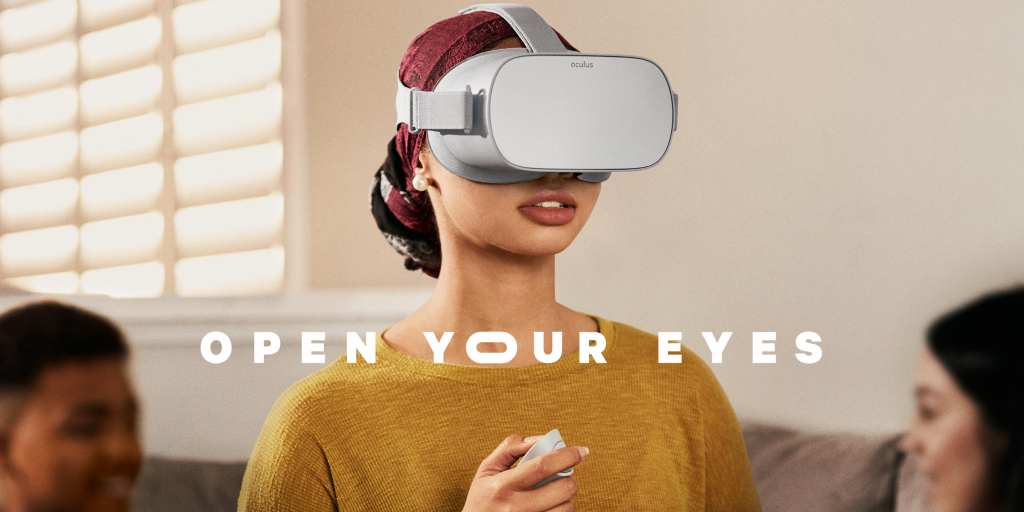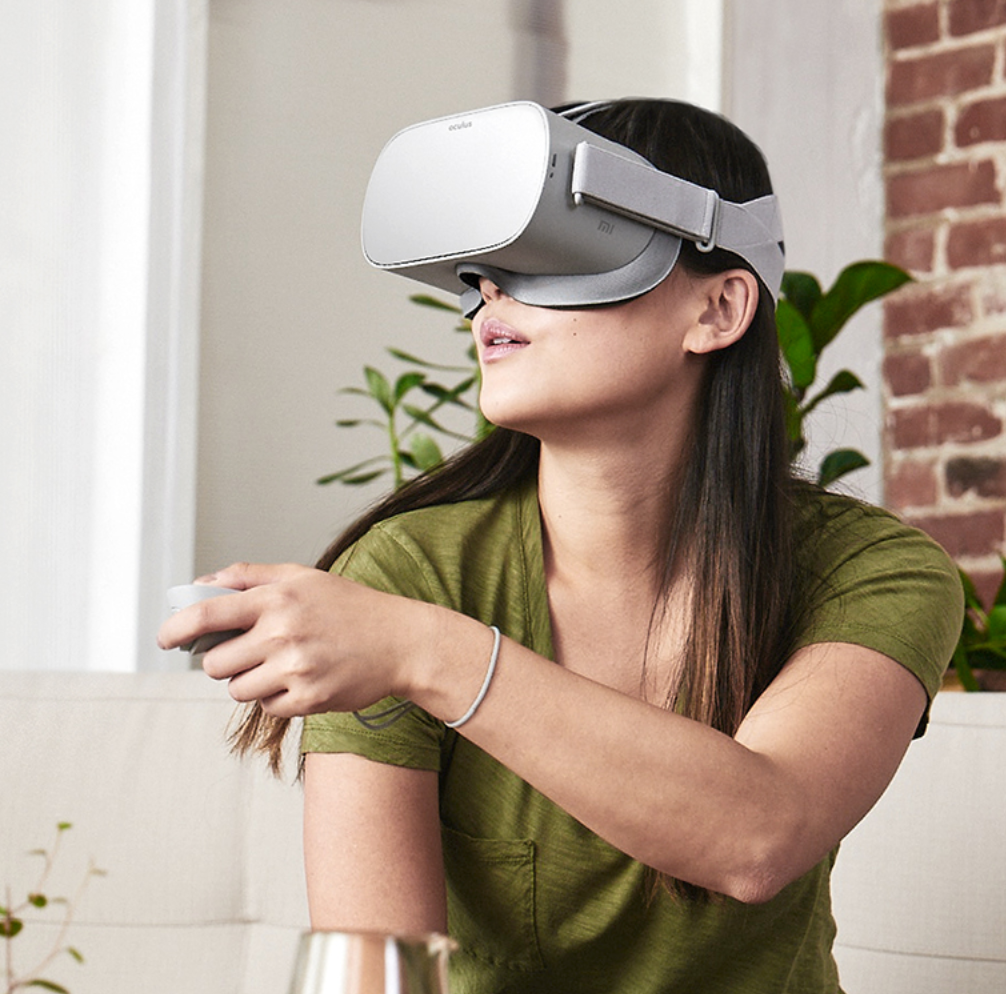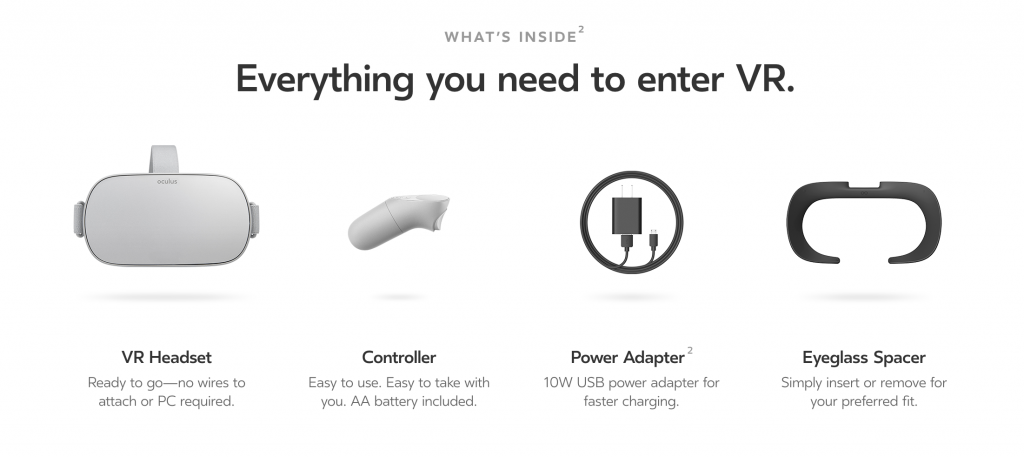
Media Gives Rave Review to FB’s $200 Entry-Level VR
CNBC’s Todd Haselton recently reviewed Facebook’s new entry-level Oculus Go VR headset, praising the device as a limited but fully functional standalone product allowing the mass market to get a taste of VR entertainment without the need for expensive and bulky peripherals. Or to, quote the article, Oculus Go might herald that VR is “finally ready for normal people.”

Via Oculus.
Best-known for its powerful Oculus Rift headset which has been synonymous with consumer VR in the past years, Oculus VR was acquired by Facebook in 2014, reflecting the company’s growing interest in AR & VR. Thus far VR has yet to see mass adoption due to the problems the technology currently suffers, problems that Oculus Go seems poised to address. Haselton views the Rift and other popular high-end VR devices as relegated to “a nerdy hobby,” given that the devices are generally “expensive, clunky or both” and require a user to either “buy a headset in addition to a smartphone, or a whole big kit and a powerful computer to run it all.” Cheap quasi-VR solutions such as Google Cardboard and copycat devices rely on the imperfect solution of mounting a smartphone within a headset.
Oculus Go, however, is an entirely standalone device requiring a smartphone only for initial setup, and does not need external peripherals to use. Additionally, the Go includes speakers within the headset, an attractive option for fully-immersive VR that Haselton notes that Go competitors “[Samsung] Gear VR and Google Daydream don’t have.”
Oculus Go lets users enjoy full VR in a variety of experiences including 3D, 360-degree VR videos and games. Go users can also enjoy standard 2D films from Netflix and other content providers in a virtual living room or movie theater environment, an experience Haselton described as “neat, sitting in this clean room with a big TV” but also described as “a bit bizarre and uncomfortable” due to not being able to see his actual body in the virtual space.

Everything you need: Oculus Go offers true VR in an attractive, all-inclusive package for the rest of us. Via Oculus.
In addition to some of the inherent discomfort of VR experiences, Haselton did have some criticisms of the Go in particular. The Go’s battery life is only a dismal two hours, and lacks a slot for additional memory. It only comes in 32GB and 64GB storage offerings. While the entry-level $200 32GB model has enough storage for “about 3 HD movies, 10 games and 20 apps,” Haselton preferred a system with more storage to minimize the amount of deleting or moving old content and make room for improvements in the resolution of VR videos and games, the latter of which he says is low-res and not compelling enough beyond the initial novelty of VR play.
Overall though, the Oculus Go was well-received and might just be the ticket for Facebook—and the technology as a whole—to have a breakout moment into the long-neglected mainstream. Summing up the Oculus Go experience as “fun in small bursts,” Haselton describes the device as a lean but impressive machine whose primary attractiveness lies in its ability to offer “everything you need for a good virtual reality experience” for curious consumers who’ve “heard the hype about virtual reality and want to get a taste of it.”
For the full review, read more at CNBC.







Leave A Comment